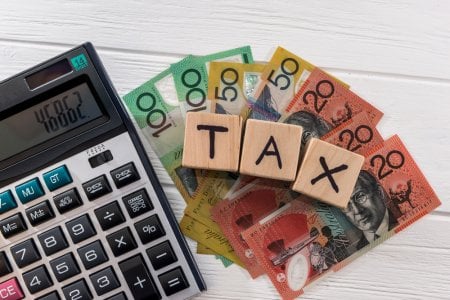Discover the secrets to slashing taxes before EOFY with these strategies
By
Seia Ibanez
- Replies 0
Disclaimer: This article should not be considered financial advice. For professional guidance, please consult a financial advisor.
As the end of the financial year (EOFY) approaches, many Australians are bracing themselves for the annual ritual of tax returns.
With the cost of living on the rise, a substantial tax refund could be a welcome relief for many.
But navigating tax rules can be daunting, and it's too easy to miss out on valuable deductions.
Fear not, members! Here is a guide through some savvy strategies to help you cut your tax bill and maximise your refund before the EOFY.
As seniors, you may have a range of work-related expenses, especially if you're still working part-time or managing a small business. These include work-from-home expenses such as home office setup, technology, and stationery.
For those who use their personal vehicle for work-related travel, remember that you can claim deductions of up to $4,250 per annum.
Remember, you can claim up to $300 for work-related expenses without receipts, though you must be able to substantiate these claims if the ATO inquires.
Consider prepaying any deductible expenses planned for the next financial year before 30 June. This can bring forward deductions and potentially increase your tax refund this year.
2. Keep Impeccable Records
Good record-keeping is essential for a smooth tax return process. It ensures you don't overlook any deductions and makes it easier to lodge your tax return.
Whether you prefer a physical filing system, a digital solution, or the ATO app, find a method that suits you and stick to it.
Regularly tracking your expenses throughout the year can also help you stay on top of your tax position and facilitate end-of-year tax planning.
3. Explore Tax Reduction Strategies
Beyond deductions, there are several strategies to consider for reducing your taxable income.
Contributing to your superannuation is a popular method, as it not only provides an immediate tax deduction but also boosts your retirement savings in a tax-effective environment. Yearly, the concessional contributions cap is $27,500, which includes employer contributions.
Investing in Australian shares or ETFs that pay franked dividends can also be beneficial. The franking credits attached to these dividends can offset your tax liability and potentially enhance your refund.
Debt recycling is a sophisticated strategy that involves using your home equity to invest in income-producing assets, making the interest on this new debt tax-deductible.
Similarly, negative gearing involves borrowing to invest, typically in property, where the costs associated with the investment, including interest on the loan, can be deducted from your taxable income.
Tax time doesn't have to be a source of stress. With the right knowledge and strategies, it can be an opportunity to improve your financial position, especially during these times of economic uncertainty.
While the tax rules may seem complex, they are manageable with a bit of effort and understanding.
In a previous story, a financial advisor shared some tips on shifting your tax-deductible expenses this current financial year.
This comes after the government announced Stage 3 tax cuts, which will decrease the value of tax deductions from 1 July. You can read more about the story here.
 Have you employed any of these strategies to reduce your tax bill? Do you have any tips or experiences to share with fellow seniors? Share them with us in the comments below!
Have you employed any of these strategies to reduce your tax bill? Do you have any tips or experiences to share with fellow seniors? Share them with us in the comments below!
As the end of the financial year (EOFY) approaches, many Australians are bracing themselves for the annual ritual of tax returns.
With the cost of living on the rise, a substantial tax refund could be a welcome relief for many.
But navigating tax rules can be daunting, and it's too easy to miss out on valuable deductions.
Fear not, members! Here is a guide through some savvy strategies to help you cut your tax bill and maximise your refund before the EOFY.
- Claim Every Deduction You're Entitled To
As seniors, you may have a range of work-related expenses, especially if you're still working part-time or managing a small business. These include work-from-home expenses such as home office setup, technology, and stationery.
For those who use their personal vehicle for work-related travel, remember that you can claim deductions of up to $4,250 per annum.
Remember, you can claim up to $300 for work-related expenses without receipts, though you must be able to substantiate these claims if the ATO inquires.
Consider prepaying any deductible expenses planned for the next financial year before 30 June. This can bring forward deductions and potentially increase your tax refund this year.
2. Keep Impeccable Records
Good record-keeping is essential for a smooth tax return process. It ensures you don't overlook any deductions and makes it easier to lodge your tax return.
Whether you prefer a physical filing system, a digital solution, or the ATO app, find a method that suits you and stick to it.
Regularly tracking your expenses throughout the year can also help you stay on top of your tax position and facilitate end-of-year tax planning.
3. Explore Tax Reduction Strategies
Beyond deductions, there are several strategies to consider for reducing your taxable income.
Contributing to your superannuation is a popular method, as it not only provides an immediate tax deduction but also boosts your retirement savings in a tax-effective environment. Yearly, the concessional contributions cap is $27,500, which includes employer contributions.
Investing in Australian shares or ETFs that pay franked dividends can also be beneficial. The franking credits attached to these dividends can offset your tax liability and potentially enhance your refund.
Debt recycling is a sophisticated strategy that involves using your home equity to invest in income-producing assets, making the interest on this new debt tax-deductible.
Similarly, negative gearing involves borrowing to invest, typically in property, where the costs associated with the investment, including interest on the loan, can be deducted from your taxable income.
Tax time doesn't have to be a source of stress. With the right knowledge and strategies, it can be an opportunity to improve your financial position, especially during these times of economic uncertainty.
While the tax rules may seem complex, they are manageable with a bit of effort and understanding.
In a previous story, a financial advisor shared some tips on shifting your tax-deductible expenses this current financial year.
This comes after the government announced Stage 3 tax cuts, which will decrease the value of tax deductions from 1 July. You can read more about the story here.
Key Takeaways
- Taxpayers can reduce their tax bill by claiming all entitled deductions, including work-from-home expenses, motor vehicle costs, and other work-related expenses up to $300 without receipts (though evidence must be provided if queried by the ATO).
- Keeping good records is critical for a smooth tax return process and ensures that all entitled tax deductions are claimed. Various methods can be used, such as digital tools or spreadsheets, to keep track of expenses throughout the year.
- Using tax reduction strategies like making superannuation contributions, investing in franked dividend shares, debt recycling, and negative gearing can lead to significant tax savings and potentially increase a tax refund.
- Building tax knowledge and skills is essential in utilising tax rules to your advantage, especially during the cost-of-living crisis. Taxpayers are encouraged to utilise resources such as ATO guides and seek professional advice if necessary.








